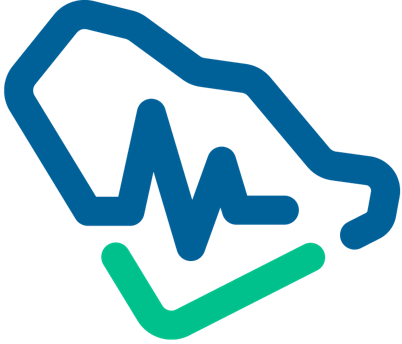
احصل على 8 ساعة معتمدة | من الهيئة السعودية للتخصصات الصحية

دورة تعلم إلكتروني عن "التقييم الصحي" للتمريض
سجل الآن، تعلم في أي وقت، ومن أي مكان
شاهد هذا الفيديو الإرشادي، الذي سيُوجهكم خلال عملية التسجيل حتى اكتمال الدورة التدريبية

تم تطوير هذه الدورة التدريبية بواسطة
مقدم برامج التطوير المهني المستمر - الحائز على جائزة التميز
تم تطويرها لـ
الممرضين والقابلات في المملكة العربية السعودية ودول الخليج


دورة تعليم إلكتروني
تعزز مهارات "التقييم" لديك وترتقي بها إلى المستوى الأعلى
في هذه الدورة التدريبية، ستحصل على فهم عميق لمجموعة واسعة من مهارات التقييم الأساسية في مجال التمريض
تتناول الدورة مجموعة من الموضوعات الرئيسية بما في ذلك
- أساسيات تقييم المخاطر
- تقييمات صحية محددة (البطن، الألم، الجرح، إصابات الضغط)
- الرعاية الصحية للمسنين
- التعرف على الصدمات وإدارتها
هذا النهج الشامل يهدف إلى تجهيز فريق التمريض للتعامل مع مجموعة متنوعة من السيناريوهات والظروف، مما يساهم في تحسين نتائج المرضى في النهاية
ليست فقط معلومات نظرية
بل تجربة يتم تطبيقها من خلال الوحدات التفاعلية والسيناريوهات الافتراضية
وحدات تفاعلية: ستشارك في دروس تفاعلية تُحاكي مواقف واقعية، مما يُساعدك على فهم المحتوى بشكل عملي وفعّال سيناريوهات افتراضية: ستُطبق ما تعلمته على سيناريوهات مُستقاة من الحياة الواقعية، مما يُساعدك على اكتساب مهارات حل المشكلات واتخاذ القرارات بشكل فعّال

رحلتك التدريبية
الخطوة الاولى
قم بالتسجيل
قم بزيارة المنصة التعليمية. أنشئ حسابًا جديدًا أو قم بتسجيل الدخول إلى حسابك الحالي. ابحث عن "NursED" في كتالوج الدورات التدريبية لدينا. اضغط على "التسجيل" واتبع الخطوات لإتمام عملية الشراء.

الخطوة الثانية
اكمل المحتوى التدريبي
بمجرد التسجيل، ستتمكن من الوصول إلى محتوى الدورة. استمتع بتجربة تعليمية مرنة تناسب جدولك الزمني وأكمل المحتوى. اجتاز الاختبار النهائي ثم شارك في تقييم فعالية الدورة.

الخطوة الثالثة
احصل على الساعات المعتمدة
تأكد من إدخال بياناتك الشخصية بدقة وأن تخصصك يندرج ضمن الفئات المستهدفة. أكمل الدورة خلال الفترة المحددة للإعتماد وأخيراً تحقق من الساعات المعتمدة للوحدات التي أكملتها
احصل على 8 ساعة معتمدة
لا تدع انشغالك يمنعك من تطوير مهاراتك
تعلم بالفترة التي تناسبك
انت من يحدد وقت ومكان التعلم
استكشف 8 وحدة تفاعلية
كل منها يقدم مهارات متخصصة في مجال التقييم الصحي
بمجرد إكمالك لأي وحدة، ستحصل على ساعات معتمدة في التعليم الطبي المستمر
وحدات الدورة
الوحدة 1: مبادئ وممارسات تقييم المخاطر وأدوات التقارير للممرضين

تمنح هذه الوحدة تقييم المخاطر الموحدة، مما يضمن التقيم الدقيق والإدارة الاستباقية لمخاطر المرضى لتحسين نتائج الرعاية الصحية وتعزيز ثقافة التحسين المستمر.
الوحدة 2: تقييم الألم: الأدوات والتقنيات للممرضين

تهدف هذه الوحدة إلى منح الممرضين المهارات الأساسية في تقييم الألم، وتشمل تعريف الألم، أنواعه، أسبابه، أعراضه، مقاييس الألم المختلفة وخطة الرعاية.
الوحدة 3: تقييم البطن: وحدة تدريبية خطوة بخطوة للممرضين

تهدف هذه الوحدة إلى تعزيز كفاءة الممرضين في تقييم البطن، مع التركيز على التشريح، تقنيات التقييم المنهجي، الاعتبارات الخاصة، إجراءات تقييم البراز، أنواع الملينات، وتفسير استخدام الحقن الشرجية.
معلومات عن الدورة
اليك بعض الارشادات التي تحتاج الى معرفتها
